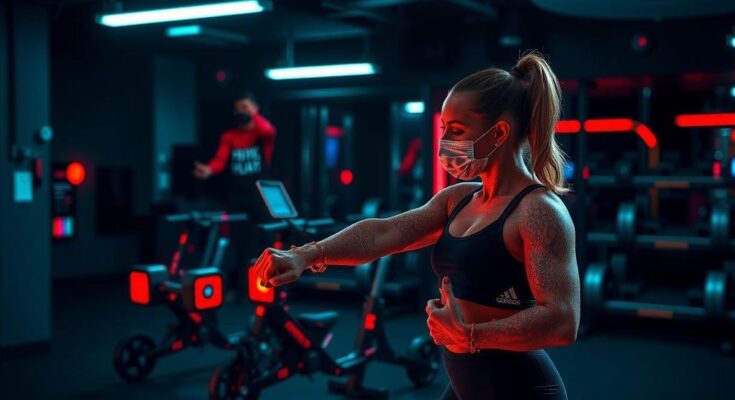TikTok is flooded with wellness and fitness trends that often mislead users, particularly regarding diets and exercise. Experts warn against adopting restrictive diets, ineffective cleanses, and erroneous beliefs about exercise. It’s crucial to question the validity of these trends and seek professional guidance to ensure a healthy approach to fitness and nutrition, avoiding the pitfalls of misinformation.
Navigating wellness and fitness trends on TikTok can be bewildering, especially with influencers touting new diets and workouts that claim miraculous results. This type of content can negatively affect those grappling with body image issues or those recovering from disorders. Increased misinformation leads to confusion and skewed perceptions about health, making it essential to discern truth from fiction in this digital age. Experts highlight various TikTok trends that should be questioned. Among them are restrictive diets, like keto and cleanses, which can harm one’s relationship with food and lead to nutritional deficiencies. Registered dietitian Brittany Werner states that sustainable eating involves a balanced approach, emphasizing the importance of whole foods instead of extreme eliminations. Cleanses, marketed as detox solutions, lack scientific backing: our bodies are already adept at detoxification via natural processes. Gastroenterologist Dr. Will Bulsiewicz asserts the fallacy of widespread parasite cleanses seen online, pointing out their rarity in a sanitized society. Instead, he advocates consulting professionals for accurate health assessments rather than relying on unverified online claims. Some common narratives suggest calories must be burned off in the gym to balance indulgence, which is misleading. The bulk of daily calorie expenditure occurs through routine activities rather than structured workouts. Thus, exercise should prioritize muscle growth and holistic health over mere calorie counts. The increasing trend of mixing protein with soft drinks like Diet Coke can lead to gastrointestinal discomfort, according to Dr. Bulsiewicz. Ingredients present in both beverages, such as artificial sweeteners and lactose, may trigger adverse reactions, particularly in sensitive individuals. Caution is advised when experimenting with such social media fads. Women often face misleading fitness advice suggesting that strength training will make them bulky or that they should limit workouts during certain times of their menstrual cycle. Experts argue this misinformation jeopardizes women’s health and fitness and reduces overall physical engagement. Encouraging diverse forms of exercise, including resistance training and cardio, is essential for lasting well-being. The allure of shortcuts, like vibration plates, misleads individuals seeking effortless weight loss or muscle gain. These devices, while beneficial for balance, cannot replace conventional exercise’s transformative benefits. The principle remains clear: dedicated effort in strength training and cardiovascular activity is vital for health goals. Fearmongering surrounding certain workouts, particularly for women, dissuades many from engaging in high-intensity exercises that can foster cardiovascular health. Experts express the need for balanced messaging, encouraging various types of physical activities while mitigating misconceptions about cortisol levels and workout intensity. Social media is flooded with contradictory information, obscuring the truth about fitness and wellness. Experts recommend questioning influencers, demanding evidence for their claims to sift fact from fiction. Reliable information should be rooted in robust research rather than anecdotal hearsay. Ultimately, it’s vital to approach wellness trends with skepticism and discernment. If something promises sweeping changes in days, it’s likely not credible. For clarity on health matters, consulting trusted professionals remains the safest course of action in a world brimming with misleading information.
The article delves into the chaotic landscape of wellness and fitness trends proliferating on platforms like TikTok, highlighting the associated misinformation. With influencers promoting everything from extreme diets to quick-fix workout tools, many users feel overwhelmed and confused. The impact of this content can be particularly harmful to vulnerable audiences, including those battling body image issues and young, impressionable viewers, making it crucial to identify trustworthy information amid the noise.
In conclusion, while TikTok and similar platforms provide a wealth of information about health and fitness, many trends promote misinformation that can be detrimental. It’s crucial to approach wellness claims with a critical eye and prioritize evidence-based practices. Consulting qualified professionals remains the best way to ensure a healthy and informed approach to fitness and nutrition, protecting oneself from harmful advice and unsubstantiated claims.
Original Source: www.cnet.com



